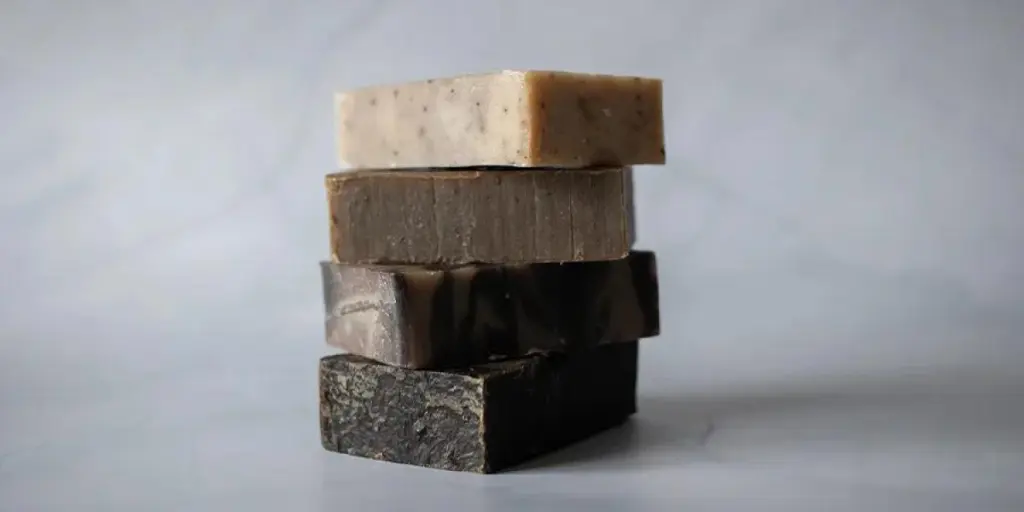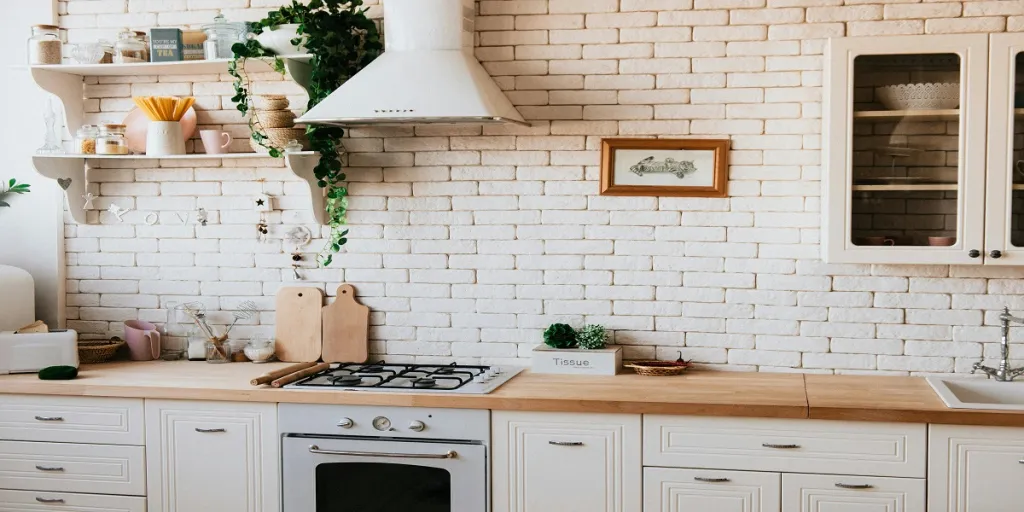Jasminum officinale flowers are grown worldwide and are valued for their beauty, fragrances, and treatment of health conditions, among other benefits. With about 200 species, it is essential to understand which jasmine flowers are safe to use, as many are toxic to people and animals. In this article, we explore several ways that people around the world use these fragrant white flowers, from Southeast Asia to Africa, Northern Iran, and further afield.
Table of Contents
The jasmine flower in décor
Jasmine flowers in food
Jasmine flower health benefits
Order your jasmine flowers online
The jasmine flower in décor
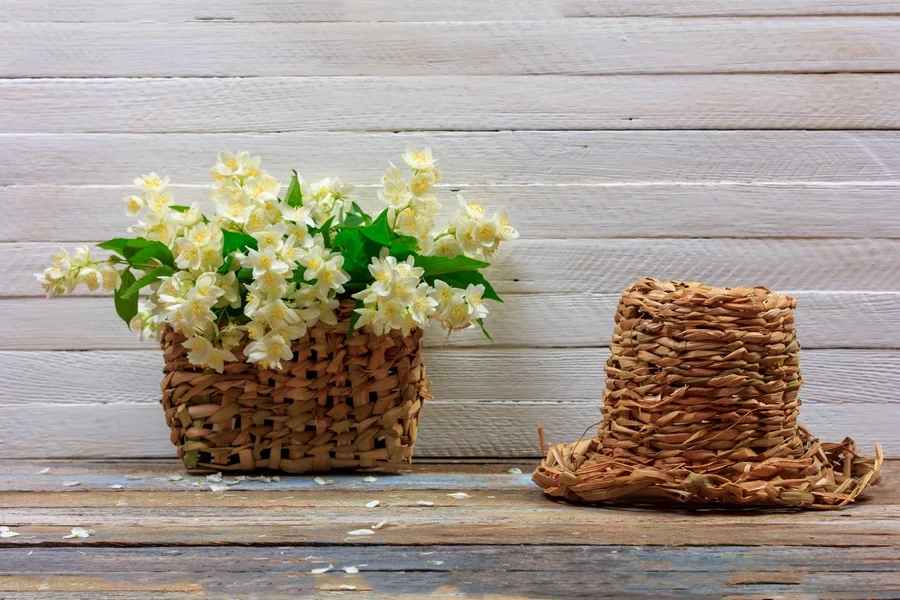
People often enjoy beautifying their spaces with flowers. Jasmine is one of those flowers that they use to enhance their interior décor and complement other decorations at special events. Here are just some ways that you can use the fragrant flowers of these shrubs as decorations.
Make occasions special: Including floral arrangements of jasmine flowers at weddings, anniversaries, parties, homes, and offices is a common way of livening up indoor atmospheres.
Décor themes: With a selection of jasmine flowers in whites, yellows, pinks, and more, and with many different fragrances and types of blooms, creating interesting bouquet themes is easy.
Versatile applications: People enjoy stunning focal flowers as centerpieces. They generate a beautiful visual aesthetic, and these plants are soft on the eye. Moreover, this visual display is enhanced by the aroma of jasmine blossoms. Other applications include cake decorations, finger bowls, walls, potpourri, bathwater, and pillows around the home.
Planting: You can plant these flowers indoors in decorative pots or outdoors in the garden. Both choices produce gorgeous displays.
Artificial jasmine flowers: If real flowers are too problematic or costly, consider artificial jasmine flowers. Realistic plastic and silk flower products are sold in three forks and two branch arrangements with complementary greenery. These items offer event organizers and floral designers a clever alternative to real flowers.
Jasmine flowers in food
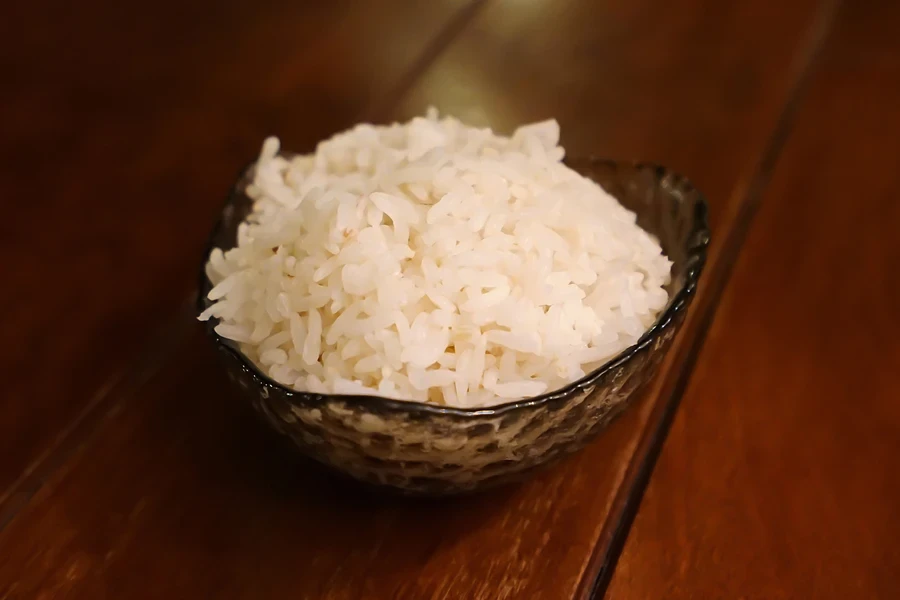
Jasminum officinale
The Jasminum officinale (common Jasmine, Jessamine, Poet’s Jasmines) is safe for use in food. Always check that you are using this flower, as other members of the Jasmine family are either toxic or not safe for consumption.
Unlike the Arabian jasmine, common jasmine is applied in several ways to enhance foods and beverages. Other than hot and cold jasmine tea and jasmine herbal teas, people drink jasmine-infused water. People use the petals or oils as infusions in drinks too, because of the unique flavor of these flowers.
Also, chefs add the spicy flavor of edible jasmine petals to salads in small quantities. They also use the flowers to decorate desserts and other courses. Aside from these applications, jasmine is a favorite ingredient in meat and poultry dishes, seafood, stir-fries, rice, baked goods, sorbets, ice creams, candy, syrups, and cocktails. Whether in Pakistan, Western China, or Europe, people are limited only by their imagination when infusing food and drinks with the common jasmine flower.
Jasminum sambac
One alternative to the jasmine officinale is the Arabian jasmine (Jasminum sambac). While this species is not toxic to touch or ingest, consumption with caution is advisable. Despite this warning note, Arabian jasmine is not commonly used in food. However, it infuses teas and ice cream with fragrant oils and aromas.
Jasmine flower health benefits
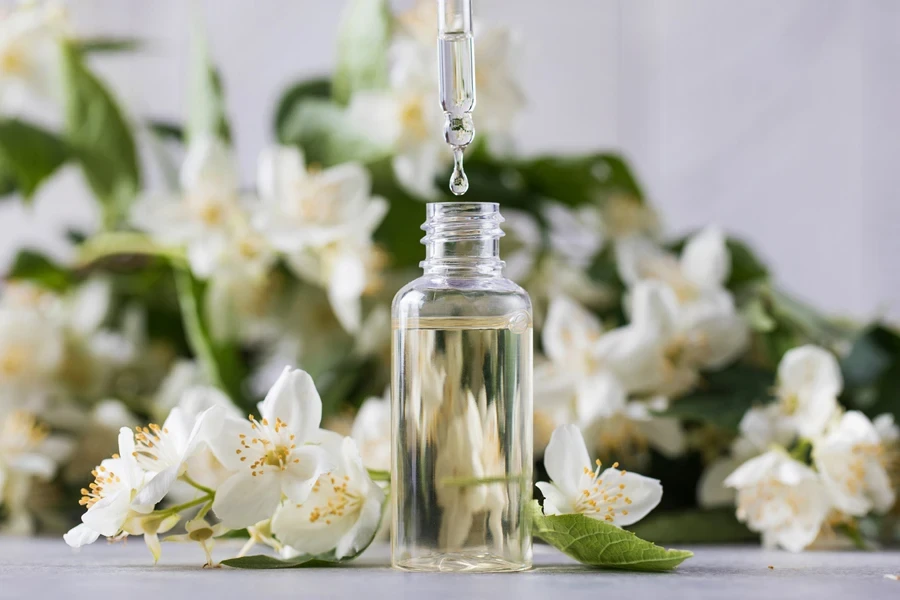
Jasmine oils are valued in aromatherapy diffusers for their ability to scent the air. Arabian jasmine oils are further used in perfumery, as are many other jasmine flower varieties. Besides enticing fragrances, people make jasmine flower tea and other applications for their many benefits.
Antioxidant effects: People have been combining black or green tea leaves with jasmine flowers for centuries to make jasmine tea. You can pick fresh flowers from this popular garden plant in the morning, rinse and dry them, and cover them with tea leaves to absorb their oils. Or, you can make black or green tea with hot water, add jasmine flowers, and allow the mixture to steep.
Whatever method you use to make jasmine tea, imbibing the flavonoids and catechins will have an antioxidant effect on your cells. Flushing toxins out of your cells helps to promote overall health and prevent disease.
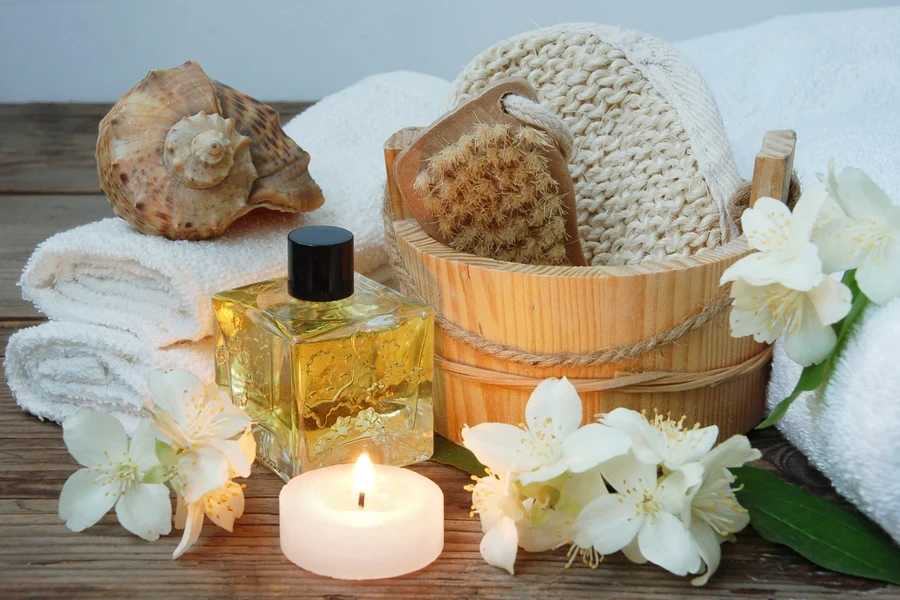
Vigor, mood, and relaxation benefits: One study shows how inhaling the fragrance of pink jasmine promotes three distinct benefits in the morning, afternoon, and evening. Inhaling the scent of this flower in the morning enhances vigor, while sniffing its aroma in the afternoon encourages a calming mood. Similarly, breathing in its fragrance in the evening helps with relaxation, relieves depression, and increases sleep quality.
Supports cardiovascular health: Another study shows how J. sambac supports cardiovascular health. Through a series of complex biological mechanisms, drinking jasmine helps maintain a healthy heart. However, it is necessary to consult a medical practitioner before using jasmine to treat serious physical ailments. Likewise, it is necessary to determine what jasmine is safe to use in any human or animal-related treatments.
Antibacterial, antifungal, and antiseptic: Additional jasmine flower benefits include antibacterial and antiseptic properties with minimal antifungal benefits.
Antispasmodic: Herbalists often use jasmine oil to treat spasms caused by coughing or stomach cramps.
Wound healing: Jasmine oil is beneficial for treating wounds and skin irritations.
Menopause: Although this plant has limited capabilities for treating menopause and hormonal imbalances, it is valuable for treating depression and improving moods.
Lactation: The properties of jasmine flowers are used to delay ovulation and enhance lactation.
Additional benefits: People drink jasmine tea to relieve stomach problems like pain and diarrhea and remove intestinal worms. Natural treatments in the East include using this plant to reduce fever and treat conjunctivitis, asthma, skin problems, tooth pains, and uterine bleeding. Additionally, natural health practitioners use jasmine to remove kidney waste and treat ulcers and quadriplegia gall. Another study shows that natural health practitioners use jasmine flowers to treat diabetes and obesity.
Order your jasmine flowers online
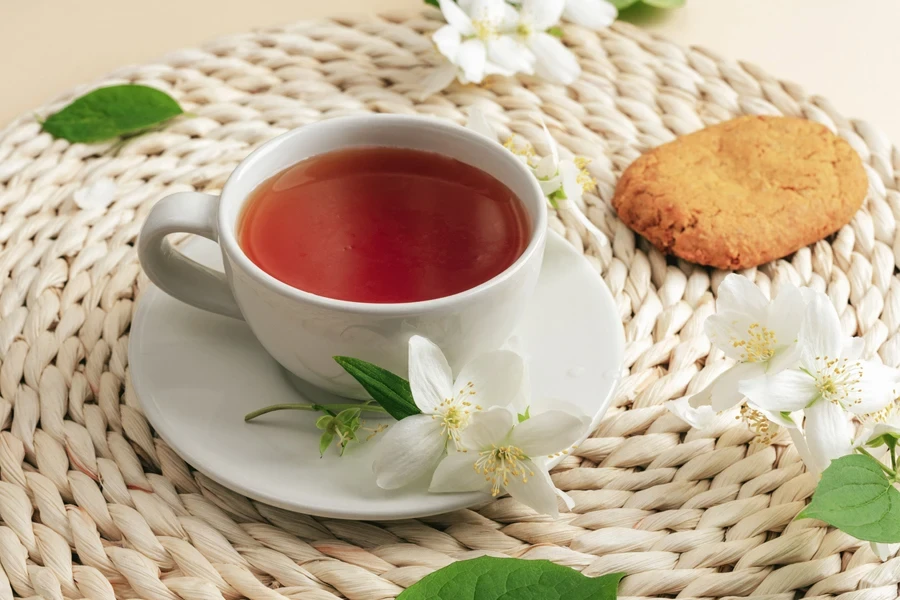
Jasmine flowers are incredibly beautiful and possess many benefits. However, using plants like this with caution is always necessary when treating a specific health condition to avoid causing harm.
Beyond health, people appreciate jasmine flowers for their décor benefits. But if you don’t want the hassle of growing jasmine plants, you can always use high-quality artificial jasmine flowers for interior décor and other applications. Similarly, you can order jasmine essential oils online at Chovm.com to experience the overall visual and health benefits of exquisite jasmine flowers.

